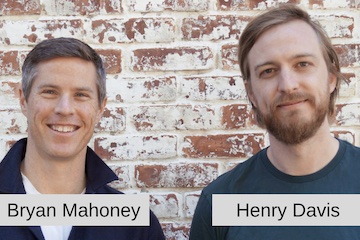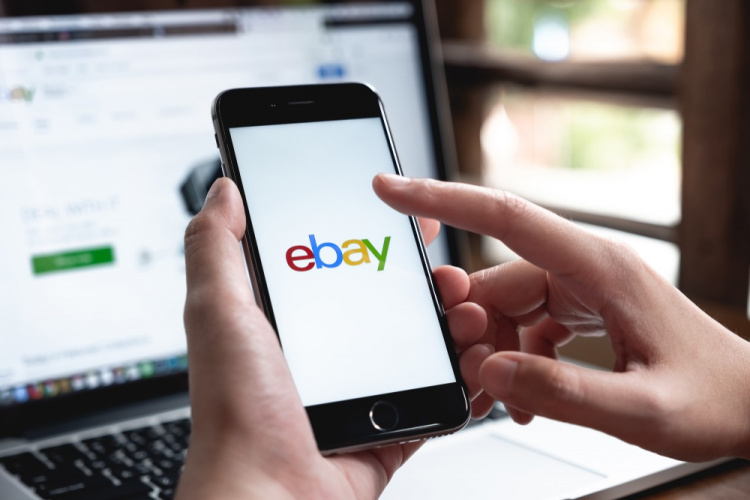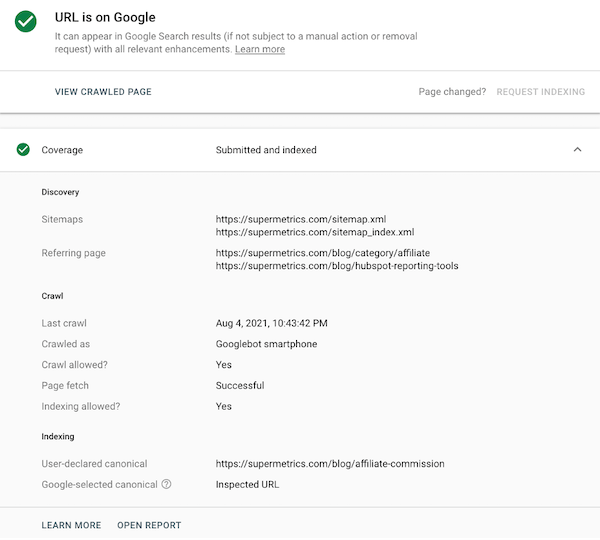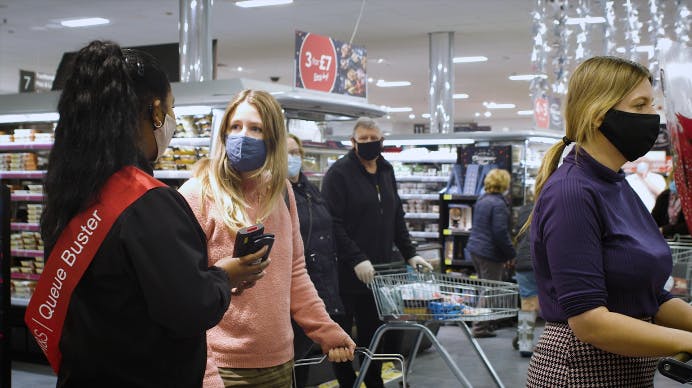
Davis: Back in 2018, we saw the coming of direct-to-consumer brands. The technical barriers to entry had come down because of Shopify, in large part. And the ability to identify groups of people that wanted to be served better had grown. DTC was going to continue to grow dramatically.
Another motiving reason for Google is to deliver a better customer experience than Amazon. That’s an important factor here. Google has been losing significant product search share to Amazon.
To me, the progressive web app technology with fast page loads will change the game in and of itself. It creates better experiences that lead to more conversions. It serves much more content in an equivalent time. That’s the first thing that’s true across headless.
Bandholz: Glossier did not use Shopify, WooCommerce, or similar. You built a custom ecommerce platform from the ground up. Henry Davis and Bryan Mahoney anticipated in 2018 the direct-to-consumer ecommerce boom. Both came from Glossier, the pioneering skincare company. They foresaw an avalanche of DTC companies that served smaller, niche audiences. Chord, a DTC-first ecommerce platform, is Davis and Mahoney’s answer to bringing sophisticated technology to smaller firms.
We built the platform to support these brands. But there’s a need to support so many more. That’s a much bigger opportunity for us. We’re going to make the platform available to everybody. It’s very exciting. That’s Chord.
And it’s not no-code. Winning on the internet isn’t going to be no-code. But it is low investment. It allows founders to focus on products and community. The result is significantly better lifetime values and higher conversion rates.
Mahoney: “Into The Gloss,” which predated Glossier by three or four years, was built on WordPress. The blog gave Emily Weiss the insight and confidence to create Glossier. She wanted a brand that spoke with customers instead of speaking at them.
Mahoney: A couple of years ago, to get the best out of headless meant rolling up your sleeves and writing some code. You had to choose the infrastructure and the APIs. You had to get the APIs to communicate. And that meant writing a whole bunch of code. For example, Glossier had a large technology team. For all intents and purposes, Glossier was a technology company. That was the state of the tools back in 2014 and 2015.
Davis: Our website is Chord.co. Bryan and I are on LinkedIn — @bryanmahoney and @henrydavisprofile.
In our minds, the era of the billion-dollar brand is over. We’re going to see many smaller brands that serve niche audiences.
Bandholz: Are progressive web apps associated with Google?
Bryan Mahoney: Yes, we did. There’s much talk these days about headless commerce. That’s what Glossier was in 2014. Our platform was API-first. It was called an SPA — single-page application. It was ahead of its time. We ended up retreating from the single-page app but never losing sight of building in an API-first and headless way. That core functionality is still in place there.
Bandholz: Headless is a buzzword. What is it?
Bandholz: You demoed Chord for me several months ago. The number of customer insights one can gather from Chord was very interesting. Can you talk about it a bit more?
Bandholz: Where can listeners learn more about you?
Large businesses have these insights already. We’re trying to make that available to everybody.
Today’s digitally native brands are omnichannel. A headless approach allows all content to remain in one place, but the front-end presentation varies depending on the channel. I call it API-first. Others refer to it as headless.
Each brand needs to represent its group. But they’re going to be smaller. So we created Arfa in early 2019 as a platform that would help us create brands for the communities we were trying to serve and allow us to scale with headless technology.
Mahoney: We are focused on Chord. The brands will live on. State of Menopause has a life as an independent company run by Stacy London, an amazing entrepreneur. We have exciting plans for Hiki, which we’ll announce soon.
Later in 2020 we launched State of Menopause, a lifestyle brand that focuses on the needs of women going through perimenopause and menopause.
Chord’s platform separates the front-end presentation from the backend infrastructure. Mahoney calls it “API first.” Others call it “headless.” I recently spoke with Davis and Mohoney about the launch of Chord, the benefits of headless commerce, and more.
So we built the platform in 2019 and launched Hiki, our first brand, in 2020. Hiki is an all-gender sweat-related company with apparel and other products people need to deal with the reality of sweating. We launched Hiki during the week that California and New York went into lockdown.
We like to call Chord the first headless platform with a brain. Built into our offering is a customer data platform. We track visitors’ actions and transactions. Our data model allows merchants to get insights out of the box. Merchants can understand how visitors click, how visitors from a certain channel behave versus from a different channel, how a customer who buys a certain product behaves versus one that buys a different item.
So, what sort of shop would get the most out of headless? It’s a shop that wants to have a relationship with technology. They have key pieces of infrastructure, such as a cart platform, an order management system, a content management system. And they’re saying, “We’re going to own how these pieces come together and how they create the customer experiences to stand out.”
And the reason we’re seeing so much interest in headless now is that merchants are feeling pain. They have chosen a lot of different apps off the shelf. The apps provided quick wins, but very quickly they slowed front-end performance and removed flexibility. So merchants are looking to root out that pain.
Bandholz: Glossier was known for its “Into The Gloss” blog on beauty and fashion tips. Was the blogging functionality built into your platform?
“We like to call Chord the first headless platform with a brain,” Davis told me. “Large businesses have [the technology] already. We’re trying to make that available to everybody.”
Mahoney: It’s the separation of concerns. There’s a presentation layer, which is what customers experience. Then there are the backend tools to manage the content on a channel and the orders generated from that channel. In a perfect world, you’re managing products and orders in separate systems — purpose-built solutions for that job. The headless approach gives you the freedom to deliver the presentational layer in the right format for customers.
Bandholz: Tell us about Chord.
Bandholz: What kind of shop can benefit from that technology?
Our entire audio conversation is below. The transcript that follows is edited for clarity and length.
Bandholz: Are you going to maintain those brands as you transition into Chord?
Mahoney: The data insights that you mentioned, Eric, is what we are the proudest of. Henry and I have been on the front lines of ecommerce for a long time. We understand the pain points.
Fast forward to 2021, and there are better infrastructure alternatives. APIs are significantly easier to interface with. You don’t need to have as big a team.
Davis: To add to that, our mission is to improve the economics of direct-to-consumer. There are few barriers to entry in launching a serviceable commerce experience. That’s great. Shopify should be massively applauded. The challenge for DTC brands is to be differentiated about the customer experience and understanding the customer. The ability to gain insights, to respond quickly. Putting content where your customers are and creating marketing campaigns has become incredibly competitive. It’s tough to differentiate. And more brands are coming.
The decision to build Glossier.com in a headless way has its roots in “Into The Gloss.” We needed a way to publish and consolidate content around research and emerging commerce trends. We needed a single source of truth for all content. So we ended up rebuilding “Into The Gloss” in an API-first, or headless, content management platform. From there, we were able to rinse and repeat for Glossier.com.
Davis: Google has emphasized PWAs. Google has a framework — accelerated mobile pages, or AMP — to facilitate it. It’s in Google’s interest to move folks in this direction. And Google is forcing brands into action by counting page speed as an organic ranking factor.
Eric Bandholz: You both came from Glossier, the skincare company.
Davis: Bryan and I can answer from different angles. I’m a business operator; he is a technical guru.
Henry Davis: That’s right. I was the chief operating officer at Glossier. Bryan was the chief technology officer.
Headless gives people the opportunity to truly differentiate their business rather than shoehorn it into whatever an ecommerce platform is telling them.






